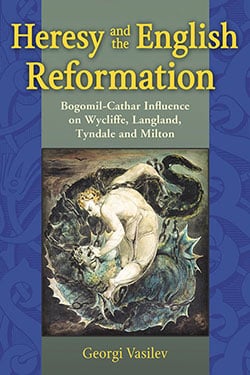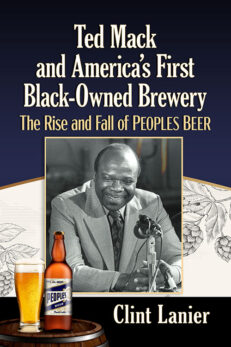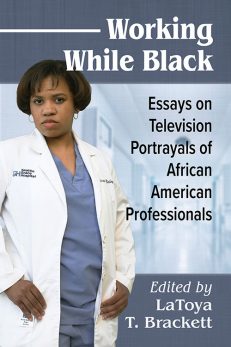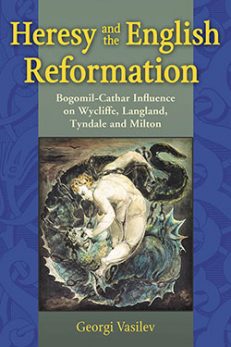Heresy and the English Reformation
Bogomil-Cathar Influence on Wycliffe, Langland, Tyndale and Milton
$49.95
In stock
About the Book
Medieval Europe was a hotbed of revolt against religious dogma. Particularly offensive to the established church were the views of the Cathars, whose dualist beliefs Rome condemned as heretical.
Through a variety of literary works, this book explores the dualist religious movement which developed as a culture of the masses and took place in Europe between the 12th and 17th centuries. It examines the strong parallels between the Bogomils and Cathars and the religious practices of the British Lollards, extrapolating Lollardy’s spread from eastern to western Europe. Providing numerous text comparisons, the work focuses on a number of authors including John Wycliffe, William Tynsdale, William Langland and John Milton, whose works exhibit the dualist philosophy.
About the Author(s)
Bibliographic Details
Georgi Vasilev
Format: softcover (6 x 9)
Pages: 212
Bibliographic Info: notes, bibliography, index
Copyright Date: 2008
pISBN: 978-0-7864-3005-5
eISBN: 978-0-7864-8667-0
Imprint: McFarland
Table of Contents
Preface 1
Introduction: The Dualist Heresy—Bridging the Island to the Continent During the Middle Ages
European Genesis 7
The Dualist Pre-Renaissance 9
1. BOGOMILS AND LOLLARDS
Penetration into England 13
Text Comparison 17
Cultural Activity of the Bulgarian and English Dualists 26
Appendix to Chapter 1: Cathars and Waldenses 30
2. TRACES OF THE BOGOMIL MOVEMENT IN THE ENGLISH LANGUAGE
The Linguistic History of the Word “Bugger” 32
Hidden Identity 36
Appendix to Chapter 2: The Good Name of Bogomils and Cathars 40
3. THE HERESY AND WOMEN
Women’s Emancipation and the Bogomils 43
Women in Catharo-Provençal Civilization 46
Lollard Women: Outstanding Personalities 50
Appendix to Chapter 3: The Right of Women to Ordain and to Shrive 54
4. JOHN WYCLIFFE AND THE DUALISTS
Our Bread Over Another Substance 57
Dualistic Arguments in Wycliffe 60
The Specific New Testament Vocabulary of Wycliffite Translations 70
From haeresia Bulgarorum to exemplum Bulgaricum 74
Appendix to Chapter 4: Anglicization in the Wycliffe and King James Bibles 79
5. DUALIST IDEAS IN THE WORKS OF TYNDALE
Tyndale—The Covert Dualist 81
The Reformation Potential of Dualism 86
Dualist Influence in the Two English Translations of the Scriptures 6
Appendix to Chapter 5: Updating the Evaluation of Tyndale 101
6. BOGOMIL-CATHAR IMAGERY AND THEOLOGY IN THE VISION OF PIERS PLOWMAN
The Fall of Lucifer 103
Christ Descends into Hell and Sets All Souls Free 105
The Bulgarian Image of Christ the Ploughman and Piers Plowman 109
Appendix to Chapter 6: Delivering the Souls . . . . . . . . . . . 116
7. THE SPIRITUAL KINSHIP BETWEEN PARADISE LOST AND THE SECRET BOOK OF THE BOGOMILS
Speculation and Miltonian Self-Identification 119
Doctrinal Expressions 123
Bogomil Imagery in the Works of Milton 134
17th Century Waldensian Translocations 147
Conclusion 150
Chapter Notes 161
Bibliography 183
Index 199
Book Reviews & Awards
“fascinating”—Midwest Book Review; “a stimulating read”—Speculum: A Journal of Medieval Studies.





